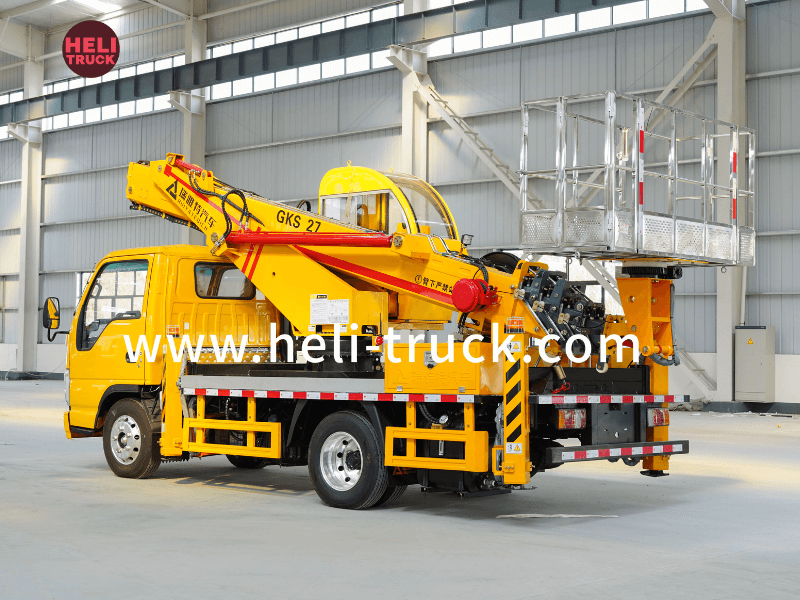Introduction:
As urban populations continue to grow around the world, the management of waste has become an increasingly pressing issue. Garbage trucks play a crucial role in collecting and transporting waste from residential, commercial, and industrial areas to disposal sites. In this article, we will explore the importance of garbage truck disposal sites in urban areas and provide a detailed analysis of their functions, challenges, and future prospects.
The Role of Garbage Truck Disposal Sites:
Garbage truck disposal sites, also known as landfills or waste transfer stations, are essential components of the waste management system in urban areas. These sites serve as the final destination for the waste collected by garbage trucks, where it is sorted, processed, and either disposed of or recycled. Garbage truck disposal sites play a vital role in ensuring the proper and efficient management of waste, helping to prevent environmental pollution, reduce health risks, and conserve natural resources.
Functions of Garbage Truck Disposal Sites:
Garbage truck disposal sites perform a variety of functions to manage the waste collected from urban areas effectively. These functions include:
1. Waste Sorting: Garbage truck disposal sites receive mixed waste collected by garbage trucks and separate it into different categories such as recyclables, organic waste, and non-recyclable materials. This sorting process is essential for maximizing the recovery of valuable resources and reducing the amount of waste that ends up in landfills.
2. Waste Processing: Once the waste is sorted, it undergoes various processing techniques to prepare it for disposal or recycling. This may include shredding, compacting, composting, or incineration, depending on the type of waste and the available facilities at the disposal site.
3. Waste Disposal: Garbage truck disposal sites are responsible for the safe and environmentally sound disposal of non-recyclable waste that cannot be reused or recycled. This may involve burying the waste in designated landfill cells or using other disposal methods such as waste-to-energy plants.
4. Recycling: Many garbage truck disposal sites have facilities for processing recyclable materials such as paper, plastic, glass, and metal. These materials are sorted, cleaned, and processed into new products, reducing the need for raw materials and energy-intensive manufacturing processes.
Challenges Facing Garbage Truck Disposal Sites:
Despite their critical role in waste management, garbage truck disposal sites face several challenges that can affect their efficiency and sustainability. Some of the key challenges include:
1. Limited Capacity: Garbage truck disposal sites in urban areas often struggle to cope with the increasing volume of waste generated by growing populations. This can lead to overcrowding, environmental pollution, and health hazards if not addressed promptly.

2. Environmental Impact: The operation of garbage truck disposal sites can have significant environmental impacts, including air and water pollution, greenhouse gas emissions, and habitat destruction. Proper waste management practices and advanced technologies are needed to minimize these impacts and protect the environment.
3. Health and Safety Risks: Garbage truck disposal sites can pose health and safety risks to workers, nearby residents, and the surrounding community. Exposure to hazardous materials, odors, and pests can result in respiratory problems, infections, and other health issues if proper safety measures are not in place.
4. Regulatory Compliance: Garbage truck disposal sites must comply with strict regulations and guidelines set by local, state, and federal authorities to ensure the proper management of waste and protection of public health. Non-compliance can lead to fines, penalties, and legal action against the operators of the disposal sites.
Future Prospects and Innovations:
To address the challenges facing garbage truck disposal sites and improve the efficiency of waste management in urban areas, several innovative solutions and technologies are being developed. https://www.heli-truck.com/ultimate-guide-to-truck-mounted-cranes-types-uses-and-future-trends/ include:
1. Waste-to-Energy Plants: Waste-to-energy plants convert non-recyclable waste into electricity or heat through incineration or other thermal processes. This technology helps reduce the volume of waste sent to landfills, generate renewable energy, and minimize greenhouse gas emissions.
2. Smart Waste Management Systems: Smart waste management systems use sensors, data analytics, and real-time monitoring to optimize waste collection routes, schedule pickups, and reduce operational costs. These systems improve the efficiency of garbage truck disposal sites and enhance the overall waste management process.
3. Circular Economy Practices: The concept of a circular economy aims to minimize waste generation, promote resource efficiency, and encourage the reuse, repair, and recycling of products and materials. Garbage truck disposal sites can play a crucial role in implementing circular economy practices and reducing the environmental impact of waste disposal.
Conclusion:
Garbage truck disposal sites are indispensable facilities in urban areas for managing the waste generated by residential, commercial, and industrial activities. These sites perform essential functions such as waste sorting, processing, disposal, and recycling to ensure the proper management of waste and protect the environment and public health. Despite facing challenges such as limited capacity, environmental impact, and health risks, garbage truck disposal sites can benefit from innovative solutions and technologies to improve their efficiency and sustainability. By embracing these innovations and adopting best practices in waste management, urban areas can achieve a cleaner, healthier, and more sustainable future for generations to come.
